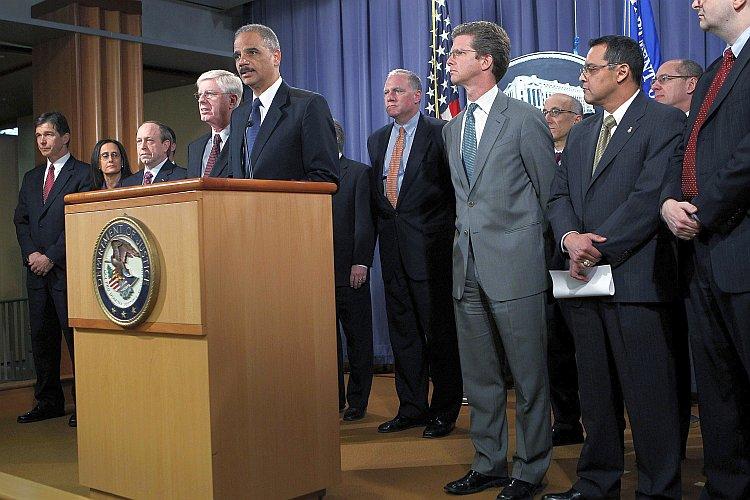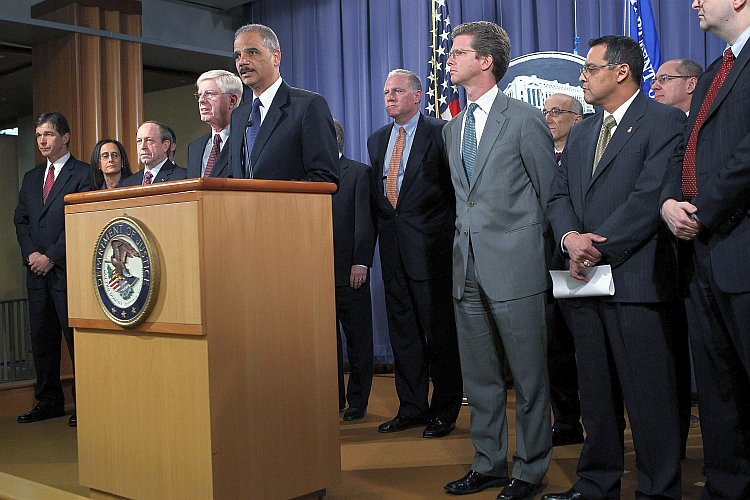The Department of Justice and 49 state attorneys general have reached a $25 billion settlement with the country’s five largest mortgage lenders: Bank of America, JP Morgan Chase Co., Wells Fargo & Company, Citibank, and Ally Financial (formally GMAC).
The agreement, aimed at recovering losses for victims of poor mortgage practices, resolves state and federal investigations into lender abuses. The settlement acknowledges that “five largest loan servicers routinely signed foreclosure-related documents outside the presence of a notary public and without really knowing whether the facts they contained were correct,” states the nationalmortgagesettlement.com website. “Both of these practices violate the law.”
Attorney General Eric Holder discussed the investigation process that led to the settlement in a press release. “Our investigations revealed disturbing practices,” Holder stated. “For instance, we saw that—far too often—servicers pushed borrowers into foreclosure, even though federal regulations required the servicers to try other alternatives first.”
“With this settlement, we aren’t just holding mortgage servicers accountable for wrongs they committed. We are using this opportunity to fix a broken system and to lay the groundwork for a better future,” Holder added.
The landmark settlement is one of the largest civil settlements ever from the U.S. attorney general’s office, second only to the Tobacco Master Settlement Agreement (MSA) of 1998.
Among the provisions of the settlement, borrowers whose mortgages are current but exceed the value of their homes will have the opportunity to refinance at today’s low-interest rate. The settlement also provides immediate payment to many borrowers who have lost their homes due to improper foreclosures. Approximately $1.5 billion of the settlement will be distributed to approximately 700,000 borrowers, averaging $2,000 per borrower.
The framework of the settlement does not prevent individuals or states from filing specific claims against their banking institutions.
Oklahoma was the only state that did not sign the agreement, as it had previously negotiated its own settlement with the lenders.
Home prices dropped 3.7 percent in 2011. The continued drop in home prices is reported to be closely linked to the high foreclosure rates caused by reckless lending practices. Millions of homes in foreclosure or close to foreclosure have created a “shadow inventory.” This excess inventory is available but not listed on the market; it works to drive the prices down.
Many believe that until this shadow inventory works its way through the market, there cannot be a recovery in the housing market.
Experts hope that the settlement will not only provide immediate relief to homeowners and the market but create reforms in lending practices.
“Our nation’s leading mortgage servicers will be required to follow a new set of standards, which will be overseen by an independent monitor—and will be enforceable in federal court,” said Holder.






